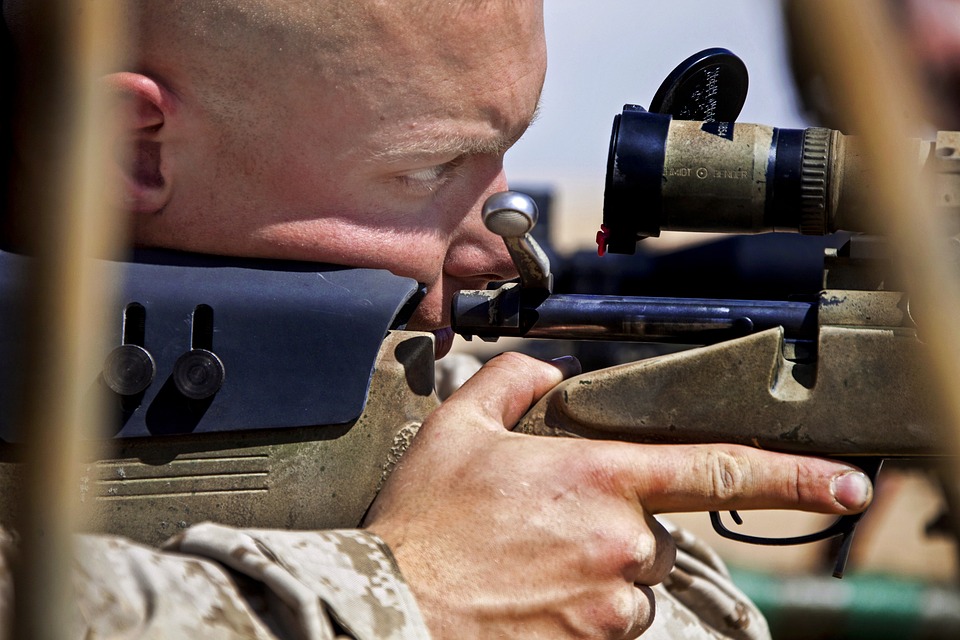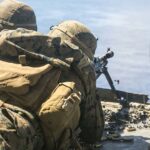Introduction
The United States Marine Corps has a long and storied history of serving on the front lines of conflicts around the world. From the battlefields of World War II to the deserts of Iraq and Afghanistan, Marines have always been at the forefront of defending America’s interests and promoting global security. But the role of the Marine Corps goes far beyond just fighting in wars. In recent years, Marines have increasingly been called upon to serve as diplomats and peacekeepers, working to build alliances and promote stability in some of the world’s most troubled regions.
The Evolution of the Marine Corps
The Marine Corps was officially established in 1775, making it the oldest continuously serving branch of the United States military. Originally created to serve as naval infantry, Marines have traditionally been tasked with storming beaches, securing strategic positions, and engaging in direct combat with enemy forces. Over the years, the Marine Corps has proven itself to be one of the most effective and formidable fighting forces in the world, with a reputation for toughness, discipline, and bravery.
In recent decades, however, the role of the Marine Corps has evolved to meet the changing nature of global conflicts. As the United States has become increasingly involved in complex and protracted conflicts in places like Iraq, Afghanistan, and Syria, Marines have found themselves serving not just as warriors, but as diplomats and peacekeepers as well. This shift in focus has required Marines to adapt to new challenges and new ways of thinking about their role in promoting global security.
Training for a New Role
In order to prepare Marines for their expanded role in global security, the Marine Corps has instituted new training programs and initiatives designed to enhance their understanding of diplomacy, cultural awareness, and conflict resolution. Marines are now undergoing training in languages, cultural studies, and negotiation techniques, in addition to their traditional combat training.
This new approach to training reflects the changing nature of modern warfare, where the ability to communicate effectively with local populations and understand cultural nuances can be just as important as tactical proficiency on the battlefield. By equipping Marines with the skills they need to engage in diplomacy and build relationships with foreign partners, the Marine Corps is better able to promote stability and security in regions where U.S. interests are at stake.
Building Relationships and Alliances
One of the key ways that the Marine Corps promotes global security is through the building of relationships and alliances with foreign militaries and governments. Marines are often deployed to countries around the world to work alongside their counterparts in training exercises, joint operations, and humanitarian missions. These partnerships not only help to strengthen the capabilities of U.S. allies, but also serve to foster trust and cooperation between nations.
By working closely with foreign partners, Marines are able to build the kind of personal relationships that can be crucial in times of crisis. These relationships can help to prevent conflicts from escalating, facilitate the sharing of intelligence and resources, and promote a spirit of cooperation and mutual respect. In many cases, Marines have been able to use their unique position as both warriors and diplomats to bridge cultural divides and build lasting partnerships that contribute to global security.
Missions in Global Hotspots
In recent years, Marines have been called upon to serve in some of the world’s most troubled regions, where their unique blend of combat skills and diplomatic expertise has been crucial in promoting stability and security. In places like Iraq, Afghanistan, and Somalia, Marines have worked alongside local forces to combat terrorism, train security forces, and provide humanitarian assistance to civilian populations.
In Iraq, Marines played a key role in the fight against ISIS, providing training, equipment, and support to Iraqi security forces as they battled to retake territory from the terrorist group. In Afghanistan, Marines have worked with Afghan forces to secure key areas, disrupt enemy operations, and build the capacity of the Afghan military and police. And in Somalia, Marines have conducted training exercises with Somali security forces to help them combat the threat posed by al-Shabaab militants.
Humanitarian Assistance and Disaster Relief
In addition to their combat and diplomatic missions, Marines also play a vital role in providing humanitarian assistance and disaster relief in times of crisis. From natural disasters like hurricanes, earthquakes, and tsunamis to man-made catastrophes like refugee crises and civil unrest, Marines are often among the first responders on the scene, providing food, water, medical assistance, and other critical aid to those in need.
One of the core principles of the Marine Corps is to always be ready to respond to crises at a moment’s notice, and Marines take this commitment seriously. Whether it’s delivering supplies to remote villages in the aftermath of a devastating earthquake or evacuating refugees from a war-torn region, Marines stand ready to lend a helping hand wherever and whenever they are needed.
Conclusion
The role of the Marine Corps in promoting global security is multifaceted and ever-evolving. From their traditional role as warriors on the battlefield to their expanding role as diplomats and peacekeepers, Marines are at the forefront of defending America’s interests and promoting stability in some of the world’s most troubled regions. By training Marines to be not just fighters, but also diplomats, humanitarian workers, and peacemakers, the Marine Corps is able to make a unique and valuable contribution to global security and stability. Whether they are building alliances with foreign partners, providing humanitarian assistance in times of crisis, or engaging in combat operations in dangerous environments, Marines continue to demonstrate their unwavering commitment to serving and protecting the United States and its allies around the world.


